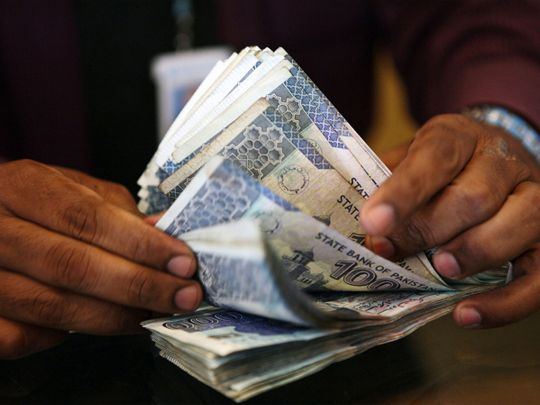
Dubai: Ahead of the all-important federal budget later in the day, the Pakistan rupee is hovering around 55 to dirham and likely to remain under pressure. This has been a tough week for the PKR, having dropped to 56.19 levels on Tuesday before pulling back to 54 levels. Today (June 10), ahead of the currency market opening, the PKR is at 54.93/54.95.
The government will with this budget hope to convince the IMF to release another $3 billion. It has already taken some of the steps the IMF has been insisting upon – raising fuel prices by Rs60 and gas rates by 30 per cent. Now, will come the even harder part, of rolling back subsidies on power tariffs and the like.
But everything hinges on the IMF bailout, and which could then be helped by credit extended by other nations. “Pakistan has seen a sharp drop in its foreign currency reserves, a big negative in its balance of payment position, and a sharp increase in its import bills due to increase in oil prices and other commodities such cooking oil and raw materials,” said Muhammad Nafees, chartered accountant and Vice-President – Finance at the Pakistan Business Council.

The negotiation with IMF for support is still in progress. And as usual, the IMF will insist on withdrawal of all subsidies and increase in interest rates, which are currently hovering around 15 per cent.
Wait and watch
On the remittance side, Pakistan expats in the UAE are in a wait-and-watch mode, expecting a further softening now that the 56 level was breached, even temporarily. Since end March, the PKR has dropped 16 per cent, feeling the impact of a change in government as well as a round of talks with the IMF (which was held late May) and which did not yield the fund release.
So, when should expat Pakistanis remit next? “When the PKR has been through a series of drops to new lows in recent weeks, most new remittances will wait until after the budget announcements,” said the analyst. “Or see whether the government has any new plans on monetary policy, which is why there’s been this level of speculation.”








